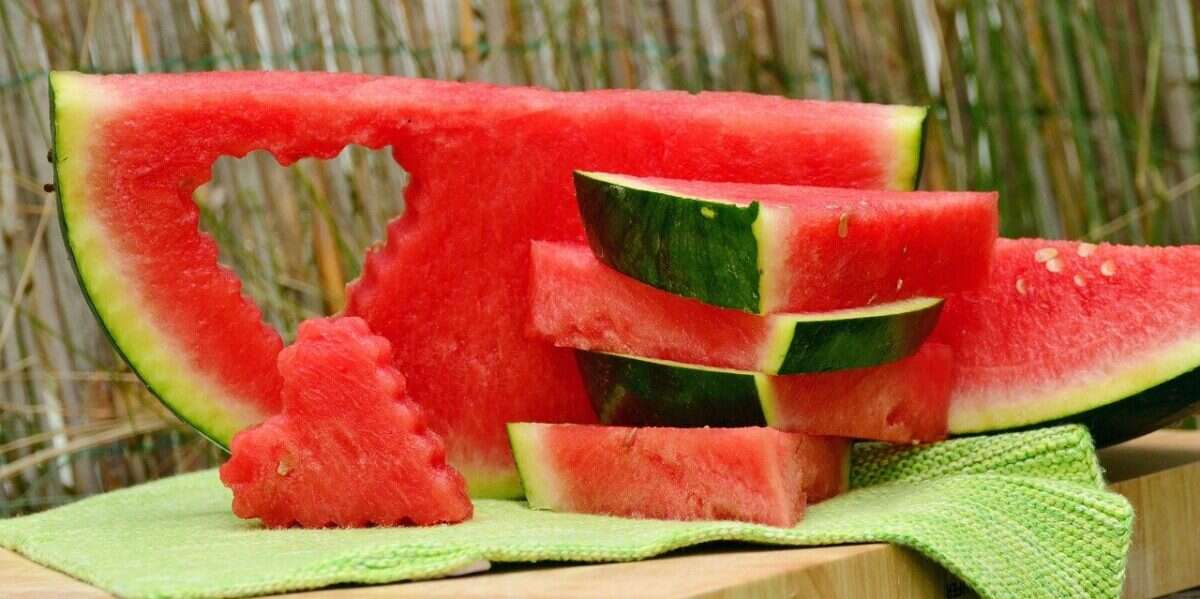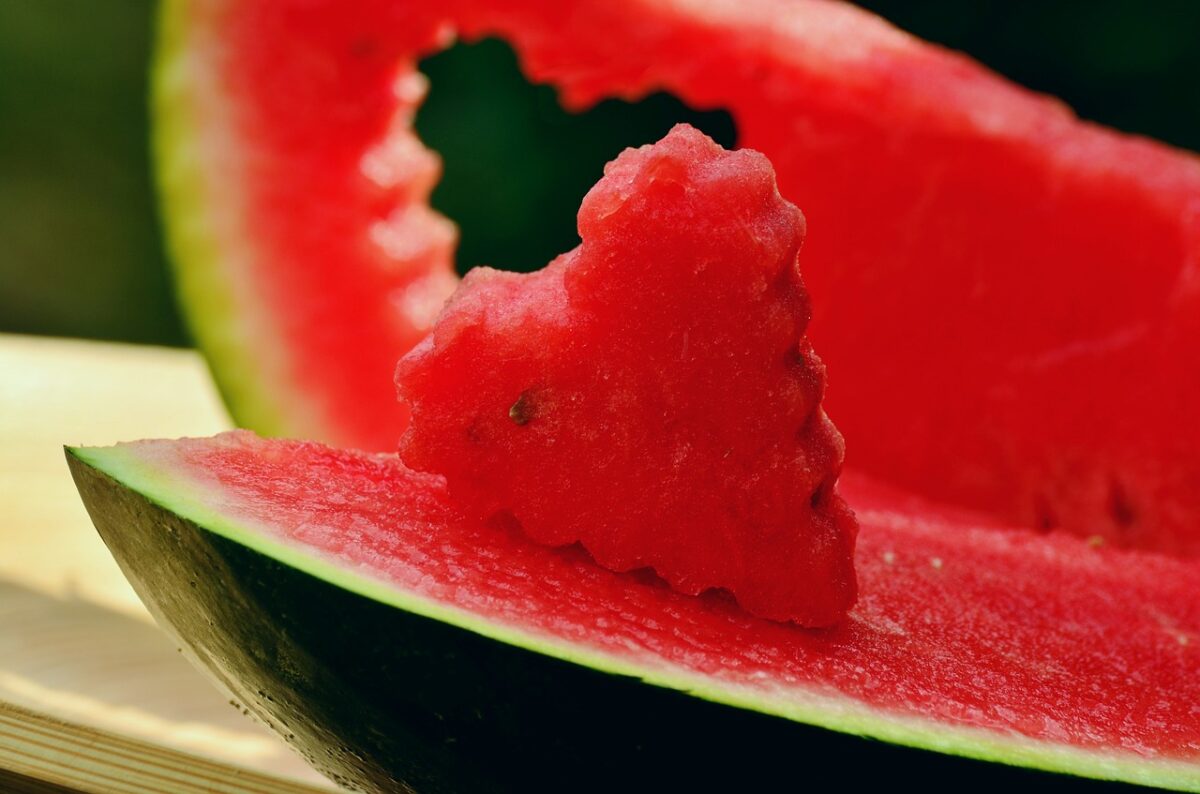 congerdesign from Pixabay"/>
congerdesign from Pixabay"/>Is watermelon healthy, apart from being a favorite fruit of many? With the arrival of summer comes new seasonal fruits, and the fruit that best quenches thirst on hot summer days is watermelon.
Watermelon originated in Africa, and were first cultivated in Egypt, where evidence of their heritage is recorded in hieroglyphs on the walls. This fruit was so valued that it was even placed in the tombs of many Egyptian kings.
Is watermelon healthy? Medicinal properties of watermelon
Watermelon contains active substances that alleviate inflammatory conditions and antioxidants that protect us from free radicals. It is an excellent diuretic because it stimulates the work of the kidneys. It increases the production of urine, which favors the elimination of toxins from the body.
For people with low libido, watermelon is the perfect fruit. Namely, watermelon contains the phytochemical citrulline, which has the property of relaxing blood vessels, thereby affecting libido. There are as many as 120 milligrams of citrulline in 150 grams of watermelon.
Also, watermelon is a rich source of nutrients important for heart health, such as vitamins A, C and B6. It contains potassium and magnesium, two minerals known to help regulate blood pressure.
Watermelon is an excellent source of vitamin B1, a vitamin that participates in energy production. Watermelon seeds are not harmful - quite the opposite. They are a rich source of magnesium, phosphorus, potassium and other minerals. In Asian medicine, watermelon seeds are used to cleanse the kidneys and for other medicinal purposes.

Watermelon juice relieves muscle pain
A Spanish study found that drinking watermelon juice can be more than pleasant in the middle of a strenuous workout. Athletes who drank half a liter of this juice an hour before training had no problems with muscle inflammation and their heart rate was lower during the day. The explanation for this phenomenon lies in the fact that watermelon contains the amino acid citrulline, which is believed to improve the function of arteries and lower blood pressure.
It has more lycopene than fresh tomatoes
Just one cup of watermelon contains 1,5 times more lycopene than a large fresh tomato, six milligrams compared to four milligrams. And this is good news, because lycopene has super-antioxidant properties, which prevent free radicals before they can damage your cells and immunity. Some research has even shown that lycopene, which is normally found in red fruits and vegetables, can prevent heart disease and some forms of cancer. To retain as much lycopene as possible in this superfood, store it at room temperature before cutting.
Not all watermelons are pink
Although it is difficult to imagine a watermelon without the typical green skin and pink "meat", there is a variety that is yellow inside. In fact, there is a variety called yellow crimson, a honey-flavored watermelon. It is interesting that these two varieties are completely identical on the outside, so it is very difficult to distinguish them.
Is watermelon a fruit or a vegetable?
There is no doubt that most people are convinced that watermelon is a fruit. But, in botany, it is classified as a vegetable due to several different criteria. The first and most important thing is that the watermelon belongs to the squash family, which belongs to vegetables.
Then, watermelon is an annual plant, and it is known that all the fruits that are used in food and that are planted every year are classified as vegetables. Considering that watermelons are planted every year, they definitely belong in the vegetable category. According to these botanical concepts and principles, watermelon is a vegetable.
However, despite all these theories and evidence, there are still those who do not accept watermelon as a vegetable. In various encyclopedias and scientific circles, watermelon is still mentioned as a fruit, while on the other hand there are strong arguments that it is a vegetable. Regardless of whether we consider it a fruit or a vegetable, watermelon is still a favorite treat.
Is watermelon healthy, general nutritional values (Source: Wikipedia):
| Nutritional value per 100 g (3,5 oz) | |
|---|---|
| Energy | 127 kJ (30 kcal) |
|
Carbohydrates
|
7,55 g
|
| Sugars | 6,2 g |
| Dietary fiber | 0,4 g |
|
Fat
|
0,15 g
|
|
Proteins
|
0,61 g
|
| Vitamins | |
| Vitamin A equiv.
beta-carotene
|
(4%)
28 μg (3%)
303 μg |
| Thiamin (B1) |
(3%)
0,033 mg |
| Riboflavin (B2) |
(2%)
0,021 mg |
| Niacin (B3) |
(1%)
0,178 mg |
| Vitamin B5 |
(4%)
0,221 mg |
| Vitamin B6 |
(3%)
0,045 mg |
| Mixed |
(1%)
4,1 mg |
| Vitamin C. |
(10%)
8,1 mg |
| Minerals | |
| Calcium |
(1%)
7 mg |
| Iron |
(2%)
0,24 mg |
| Magnesium |
(3%)
10 mg |
| Manganese |
(2%)
0,038 mg |
| Phosphorus |
(2%)
11 mg |
| Potassium |
(2%)
112 mg |
| Sodium |
(0%)
1 mg |
| Zinc |
(1%)
0,1 mg |
| Other constituents | |
| Water | 91,45 g |
| Lycopene | 4532 g |
What do you think, is watermelon healthy?
READ: WHERE CAN I BUY THE BOOK TRADITIONAL RECIPES OF HOME SERBIAN CUISINE?
Read more:
The Recipes and Kuvar online portal is ranked among the TOP 50 websites in Serbia!
Don't miss a recipe - Recipes and cookbook online on Facebook. Stay tuned, follow the Recipes and Cookbook twitter notifications!






